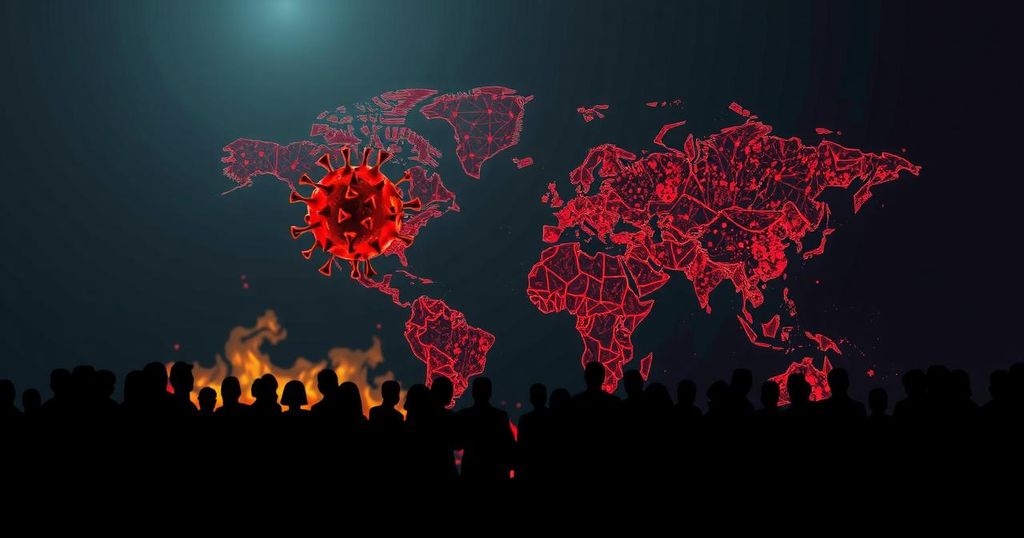Picture this – the startling news of the first instance of a deadlier strain of mpox outside of Africa. The bombshell was released by Sweden’s public health agency, revealing that the afflicted person contracted the disease during a trip to an area in Africa where the outbreak has been wreaking havoc.
Now hold on – the World Health Organization (WHO) has recently escalated the mpox outbreak in parts of Africa to a public health emergency of international concern. This is no laughing matter, my friends.
Originally, the mpox outbreak claimed the lives of at least 450 people in the Democratic Republic of Congo, and now it’s making its way through Central and East Africa. The situation is dire, to say the least.
Olivia Wigzell, the acting head of the Swedish public health agency, stated that the infected person sought medical treatment in the Stockholm area. But let’s not jump to conclusions – receiving care in Sweden doesn’t automatically put the wider population at risk.
Mpox, formerly known as monkeypox, can spread through close contact, such as sex, skin-to-skin contact, or even just talking or breathing near another person. The symptoms? Think flu-like symptoms, skin lesions, and in the worst-case scenario, it can be fatal. Yes, you read that correctly – fatal.
Now here’s the clincher – a more serious form of mpox, Clade 1b, was identified just last year and it’s causing quite a stir. This variant is leading to a more severe and deadly course of the disease. It’s currently causing mayhem in Africa, with confirmed cases in Burundi, Kenya, and Rwanda. And now, Sweden is in the mix.
What’s even more alarming is that the spread of this dangerous Clade 1b variant appears to be more widespread than previously believed. Just imagine the implications for the global community.
But wait, experts aren’t hitting the panic button just yet. Dr. Jonas Albarnaz, an expert in pox viruses at the Pirbright Institute, underscored the seriousness of the situation. The first case outside of Africa raises concerns about the potential for a larger spread than previously known.
And here’s the kicker – there are vaccines available for those at high risk or those who have been in close contact with an infected person. However, there’s a catch. Many are worried that there aren’t enough vaccines or funding to get them to the people who need them most.
Here’s the twist – the mortality rate from the Clade 1b variant in Sweden may not be as high as what’s seen in Africa, all thanks to the top-notch healthcare in Europe. But that doesn’t mean it’s smooth sailing.
Dr. Brian Ferguson, Associate Professor of Immunology at the University of Cambridge, brought attention to the lack of measures to prevent imported cases of mpox from occurring. There’s a possibility of additional cases popping up in Europe and other parts of the world.
So, what should we watch out for? The European Centre for Disease Prevention and Control emphasized that symptoms typically appear 6-13 days after infection, including fevers, headaches, rashes, sores, and muscle aches.
But here’s the thing – while news of the first case outside Africa may be frightening, it’s not all despair and desolation. History has demonstrated that swift international action can put a stop to the spread of such diseases.
In conclusion, the world must come together to confront this mounting threat. It’s a call to action for countries to join forces and work together before this baton is passed on to another unsuspecting victim. So, let’s all hope for a prompt and effective response to contain this emerging global health crisis.

Leave a Reply